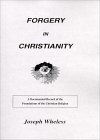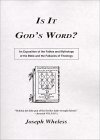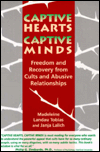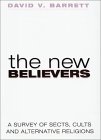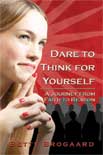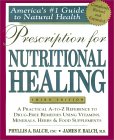Recommended Books
"The Book Your
Church Doesn't Want
You to Read"
by
Tim C. Leedom
446 pages.
"Who wrote
the
New Testament?"
by
Burton L. Mack
326 pages.
"Who wrote the Bible?"
by
Richard Elliott Friedman
299 pages
The Born Again Skeptic's Guide To The Bible
by Ruth Hurmence Green
Paperback - 440 pages
$15.00
The Holographic Universe
by Michael Talbot
352 pages $11.20
"The Mind of The Bible Believer"
by
Edmund D. Cohen
432 pages.
"Steve Allen on the Bible, Religion, and Morality "
by
Steve Allen
428 pages
"More Steve Allen on the Bible, Religion, & Morality/Book II "
by
Steve Allen
452 pages
The Demon-Haunted World : Science As a Candle in the Dark
by Carl Sagan
$11.20 457 pages
Forgery in Christianity : A Documented Record of the Foundations of the Christian Religion
by Joseph Wheless
Our Price: $30.00
"Why People Believe Weird Things"
Michael Shermer
306 pages $11.96"

"The "God" Part of the Brain "
by Matthew Alper
188 pages
$11.95
Read a review.
The Dark Side of Christian History
by Helen EllerbeSoft Cover
$10.36
221 Pages

Assertive Incompetence
By Douglas Becker
$20Exposes the narcissistic scoundrels for who they are and learn all the dark secrets they use to confuse and manipulate you.

The Psychology of Persuasion
by
Robert B. Cialdini
320 Pages$12
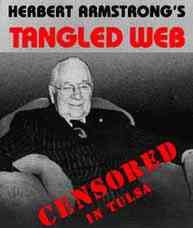
Herbert Armstrong's Tangled Web
By
David Robinson

"The True Believer"
by
Eric Hoffer
192 pages
$9.60
Is It God's Word : An Exposition of the Fables & Mythology of the Bible & the Fallacies of Theology
by Joseph Wheless
$33
Losing Faith in Faith : From Preacher to Atheist
by
Dan Barker$20.00
Captive Hearts, Captive Minds : Freedom and Recovery from Cults and Other Abusive Relationships
by Madeleine Landau Tobias
304 pages
$11.96
The Encyclopedia of Biblical Errancy
By
C. Dennis McKinsey 553 pages
When God Becomes A Drug
By
by Leo Booth 242 pages
$15.00The Homeric Epics and the Gospel of Mark
by Dennis R. MacDonald
272 pages
$32.00Jesus : One Hundred Years Before Christ
by Alvar Ellegard
$30.362000 Years of Disbelief : Famous People With the Courage to Doubt
by James A. Haught
334 Pages
$24.00Deconstructing Jesus
by Robert M. Price
275 Pages
$25.60

Releasing The Bonds: Empowering People to Think for Themselves
by Steven Hassan416 pages
$19.96
WHY the Holocaust HappenedIts Religious Cause & Scholarly Cover-Up
Soft Cover: $16.96
e-book: $4.00
The Christ Conspiracy
Soft cover
$11.87
430 pages
The Elegant Universe
Soft Cover
$9.57
448 pagesThe New Believers
by David V Barrett
560 Pages
$20.97Click here to read a short review.
The Bible Unearthed: Archaeology's New Vision of Ancient Israel and the Origin of Its Sacred Texts
by Israel Finkelstein, Neil Asher Silberman$11.20
On Angels Wings : A Spiritual Journey
By Patricia Ann LaessigFormer WCG member.
Dare to Think for Yourself: A Journey from Faith to Reason
Betty J. Brogaard
Full Review Here
Prescription for Nutritional Healing : A Practical A-Z Reference to Drug-Free Remedies Using Vitamins, Minerals, Herbs, and Food Supplements
by Phyllis A., C.N.C. Balch, James F., M.D. Balch
$16.76
"What Your Doctor May Not Tell You About Menopause:
The Breakthrough Book on Natural Progesterone"
by
Virginia Hopkins, John R. Lee MD
In this issue of e-Skeptic for December 17, 2000
Copyright Michael Shermer and the Skeptics Society. Permission grated to
forward the contents of this e-Skeptic hotline message.
THE MOST RECOMMENDED SKEPTICS BOOKS
-----------------------------------------
The Most Recommended Skeptics Books
Here are the results of our recent e-Skeptic hotline request for the most
recommended skeptics books. It is broken down into (1) The Top Ten, (2)
Multiple nominations, (3) Jr. Skeptic recommendations, (4) single
nominations, (5) commentary on some of the titles provided by readers.
Please note: This is not an attempt to list the "most important" books, or
the books that had the greatest impact. We were after those books that people
recommend to others to read, or that professors assign to their students to
read. These lists are meant to supplement the Baloney Detection Kit, that
includes course syllabi for professors and recommended reading lists. About
300 people responded to the request.
We would like to have a few more children's and young adult's book
recommendations, so if you can think of any not listed here please e-mail
them to skepticmag@aol.com, subject heading "JR. SKEPTIC BOOKS"
THE TOP TEN (with number of votes):
1. The Demon Haunted World: Science as a Candle in the Dark by Carl Sagan 42
2. Why People Believe Weird Things by Michael Shermer 29
3. Flim Flam!: Psychics, ESP, Unicorns and Other Delusions by James Randi 21
4. Fads and Fallacies in the Name of Science by Martin Gardner 10
5. How to Think About Weird Things by Theodore Schick and Lewis Vaughn 10
6. The Faith Healers by James Randi 8
7. How We Believe by Michael Shermer 8
8. The New Age: Notes of a Fringe Watcher by Martin Gardner 6
9. The Mismeasure of Man by Stephen Jay Gould 4
10. Voodoo Science: The Road From Foolishness to Fraud by Robert L. Park 4
Receiving multiple nominations (alphabetical by title within identical vote
categories):
Asimov's Guide To The Bible by Isaac Asimov 3
Atheism: The Case Against God by George H. Smith 3
Dumbth: The Lost Art of Thinking by Steve Allen 3
Frauds, Myths, and Mysteries: Science and Pseudoscience in Archaeology by Kenneth L. Feder 3
How to Lie with Statistics by Darrell Huff 3
Inevitable Illusions by Massimo Piatelli-Palmarini: How Mistakes of Reason Rule Our Minds 3
Innumeracy: Mathematical Illiteracy & its Consequences by John Allen Paulos 3
Science on Trial by Douglas Futuyma 3
The Tower of Babel by Robert Pennock 3
Unweaving the Rainbow by Richard Dawkins 3
Why I am Not a Christian by Bertrand Russell 3
The Ascent of Man by Jacob Bronowski 2
Believing in Magic: The Psychology of Superstition by Stuart A. Vyse 2
Cosmos by Carl Sagan 2
Encyclopedia of Claims, Frauds, and Hoaxes of the Occult and Supernatural by
James Randi 2
Extraordinary Popular Delusions and the Madness of Crowds by Charles Mackay 2
Gospel Fictions by Randel Helms 2
The Health Robbers by Stephen Barrett 2
How to Think Straight About Psychology by Keith Stanovich 2
Influence: The Psychology Of Persuasion by Robert Cialdini 2
In Search Of The Light: The Adventures of a Parapsychologist by Susan
Blackmore 2
Letters to the Earth by Mark Twain 2
Losing Faith In Faith by Dan Barker 2
A Mathematician Reads the Newspaper by John Allen Paulos 2
The Night is Large: Collected Essays 1938-1995 by Martin Gardner 2
On the Wild Side by Martin Gardner 2
The Pleasure of Finding Things Out: The Best Short Works of Richard Feynman 2
Science: Good, Bad, and Bogus by Martin Gardner 2
Uncommon Sense: The Heretical Nature of Science by Alan Cromer 2
-------------------------------------------------------------------------
The Most Recommended Jr. Skeptic Books:
How We Know What Isn't So by Thomas Gilovich 5
Just Pretend by Dan Barker 2
Maybe Yes, Maybe No by Dan Barker 2
Maybe Right, Maybe Wrong by Dan Barker 2
Alexander Fox and the Amazing Mind Reader
The Encyclopedia Brown Books by Donald J. Sobel
How Do You Know Its True? by Hy Ruklis
The Magic Detectives by Joe Nickell
UFOs by Philip Klass
The Wizard of Oz by Frank L. Baum
Wonder Workers by Joe Nickell
-------------------------------------------------------------------------
Receiving One Recommendation (alphabetical by title):
The Age of Reason by Thomas Paine, 1795
Aha! Gotcha: Paradoxes to puzzle and delight by Martin Gardner
Aha! Insight by Martin Gardner
Anomalistic Psychology: A Study of Magical Thinking by Leonard Zusne and Warren Jones
Anti-Intellectualism in American Life by Richard Hofstader
Asking the Right Questions: A Guide to Critical Thinking by M. Neil Browne
The Astonishing Hypothesis by Francis Crick
Begone Godmen by Dr. L. Abraham Kovoor
Bible, Religion and Morality Vol. 1 & 2, by Steve Allen
Billions and Billions by Carl Sagan
The Blind Watchmaker by Richard Dawkins
The Case Against Creationism by Phillip Kitcher
Chicken Soup for the Damned Soul by Ed Babinski
Clear Thinking: A Practical Introduction by H. Ruchlis and S. Oddo
Contact by Carl Sagan
The Copernican Revolution by Thomas Kuhn
The Corruption of Reality by John F. Schumaker
Critiques of God (edited) by Peter Angeles.
Cults in America by Willa Appel
Darwin's Ghost by Steven Jones
Denying History by Michael Shermer
The Diseasing of America by Stanton Peele
The Divided Self by R.D. Laing
The Dragons of Eden by Carl Sagan
Dreams of a Final Theory by Steven Weinberg
Encounters of the Paranormal edited by Kendrick Frazier
The Encyclopedia of Bible Errancy by C. Dennis McKinsey
Encyclopedia of Evolution by Richard Milner
The End of Science by John Horgan
ESP: A Scientific Evaluation by C.E.M. Hansel
Ever Since Darwin by Stephen Jay Gould
Evolution and The Myth of Creationism by Tim M. Berra
The Extinct Cognitive Christian by D. Boening
The Final Superstition by Joseph Daleiden
Finding Darwin=92s God by Kenneth Miller
Forgery In Christianity by Joseph Wheless, 1930
Galileo's Revenge by Peter William Huber
The Gift of Fear: Survival Signals That Protect Us from Violence by Gavin de Becker
House of Cards by Robyn Dawes
How to Play With Your Food by Penn and Teller
How to Watch TV News by Neil Postman
How to Win Every Argument (also pub. as The Art of Deception) by N. Capaldi
Hystories by Elaine Showalter
Is It God's Word? by Joseph Wheless, 1926
The Jesus Mysteries by Freke
Leaps of Faith by Nicholas Humphrey
Logic and Contemporary Rhetoric: The Use of Reason in Everyday Life by Howard Kahane
The Logic of Failure: Recognizing and Avoiding Error in Complex Situations by Dietrich Dorner
Looking For a Miracle by Joe Nickell
Magic or Medicine?: An Investigation of Healing and Healers by R. Buckman and K. Sabbagh
A Magician Among the Spiritualists by Harry Houdini
Making Us Crazy--DSM: The Psychiatric Bible and the Creation of Mental Disorders by Herb Kutchins and Stuart A. Kirk
Man and His Gods by Homer W. Smith
The Meaning of it All: Thoughts of a Citizen-Scientist by Richard Feynman
The Mind of the Bible Believer by Edmund D. Cohen
Mind, Machines, and Evolution by James P. Horgan
The Monk and the Philosopher: A Father and Son Discuss the Meaning of Life by Jean Francois Revel, Matthieu Ricard, John Canti (Translator)
Mysterious Realms by Joe Nickell with John F. Fischer
The Natural History of Nonsense by Bergen B. Evans
Our Kind by Marvin Harris
The Passover Plot by Hugh Schonfield
Physiological Bases of God Beliefs by Dr. Michael Persinger
Religion Without Revelation by Julian Huxley
The Mask of Nostradamus by James Randi
Pseudoscience and the Paranormal by Terence Hines
Reason and Culture by Ernest Gellner
The Relativity of Wrong by Isaac Asimov
Robert G Ingersoll--44 Lectures Complete.
Satanic Panic by Victor Frank
The Satiricon: Creationism Bashed by Robert S. Dietz
Saving the Bible from Fundamentalism by John Shelby Spong
Science and Pseudoscience by Terence Hines
Science Matters by Robert M. Hazen and James Trefil
Science, Reason, and Anthropology: A Guide to Critical Thinking by James Lett
Secrets of the Supernatural by Joe Nickell and John F. Fischer
Shadows of Forgotten Ancestors by Carl Sagan and Ann Druyan
Skeptics and True Believers by Chet Raymo
The Skeptics Annotated Bible
Skeptics Dictionary by Bob Carroll--available only on the internet.
The Social Construction of Reality by Peter L. Berger and Thomas Luckmann
Stealing Jesus: How Fundamentalism Betrays Christianity by Bruce Bawer
The Structure of Scientific Revolutions by Thomas Kuhn
Summer of the Gods by Edward J. Larson
Surely You're Joking by Richard Feynman
Tales of the Rational: Skeptical Essays About Nature and Science by Massimo
Pigliucci
Teaching Thinking by E. De Bono
Think to Win: The Power of Logic in Everyday Life by S. Cannavo
The True Believer by Eric Hoffer
The Truth about Uri Geller by James Randi
Twenty Questions by G. Lee Bowie
The Undiscovered Mind by John Horgan
The Untamed Tongue, also by Thomas Szasz
An Urchin in the Storm by S.J. Gould
The Web of Belief by W.V. Quine and J. S. Ullian
What Do You Care What Other People Think? by Richard Feynman
What is This Thing Called Science? by A. F. Chalmers
Who Wrote the Bible? by Richard Elliot Friedman
Who Wrote the Gospels? by Randel Helms
Why Christianity must Change or Die by John Shelby Spong
-------------------------------------------------------------------------
COMMENTARY ON BOOKS
(alphabetical by title)
Aha! Gotcha: Paradoxes to Puzzle and Delight by Martin Gardner
"Fun paradoxes to make you think."
Aha! Insight by Martin Gardner
"A book to hone thinking skills and enjoy it at the same time."
Anti-Intellectualism in American Life by Richard Hofstader
"Not technically a critical thinking book, but it does challenge much of the
prevailing intellectual laziness that prevents us from thinking critically.
And it's just as relevant now as it was when it first written decades ago.
The Ascent of Man by Jacob Bronowski
"Because it provides an overall prespective on the importance of reason in
the historical development of mankind."
The Beak of the Finch by Jonathan Weiner
"This book illustrates how scientists are methodically uncovering the very
concrete nature of natural selection and genetic foundations of behavior.
Beautifully written."
The Bermuda Triangle Mystery: Solved by Larry Kusche
"Beautiful job of showing how legands develop by ignoring data or never
checking it as well as selective reporting."
Clear thinking: A practical introduction by H. Ruchlis and S. Oddo
"A good text suitable for bright high school students or college freshmen."
Contact by Carl Sagan
"Because, for me anyway it introduced me to skepticism by way of great story
with compelling ideas."
Cults in America by Willa Appel
"Because it is a concise report of the techniques, activities and social
significance of cults. It also describes the indoctrination and recovery
psychological process very well, thereby helping people recognise and resist
these techniques when they are inflicted on them."
Darwin's Ghost by Steven Jones
"Very readable reworking of Darwin's Origin in light of current research.
Great book!"
The Demon Haunted World by Carl Sagan
"As you know, an absolute must." "This book had a profound effect on my
life." "Because, after reading Contact I was left hungry for more. An
Excellent introduction to real world critical thinking."
The Diseasing of America by Stanton Peele
"Peele debunks assumptions about addiction and the potential harm done by
treatments based on these assumptions. Treatments based on pseudoscience can
be dangerous."
The End of Science and The Undiscovered Mind by John Horgan
"These two books will challenge a skeptic's ability to take critical thinking
skills right into the scientific enterprise ... and they presage the debates
that will engage a skeptical community that, in future, goes beyond the task
of debunking the latest fad of the credulous. Can scientists take a dose of
their own medicine?"
Fads and Fallacies in the Name of Science by Martin Gardner
"This has got to be the best all-time. All of it is still relevant, the same
fads and fallacies are still around in new (or even the same old) guises.
This is what got me started back in the late late 1950s."
"Should be required reading for high school students, an older book that is
easy to read, often funny, and will still open the eyes of many teenagers.
Definitely a 'reactive' book, but still a cornerstone of modern skepticism."
Flim Flam!: Psychics, ESP, Unicorns and Other Delusions by James Randi
"A masterful demonstration of the wizard at work showing up the tricksters
who would scam us."
"Has a popular tone and exposes a good many of the more popular scams."
"A down to earth on the front lines kind of book."
The God Particle by Leon Lederman
"What Hawking does for cosmology, Lederman does for particle physics (while
having you in stiches!)"
The Golden Bough by James Frazer
"The book I have routinely given as a gift. It is absolutely essential for
understanding the origins of religion."
Great and Desperate Cures: The Rise and Decline of Psychosurgery and Other
Radical Treatments for Mental Illness by Elliot S. Valenstein
"Another classic case study of science mis-used, with an immediacy that
senior-level high school students could appreciate. The perils of poorly-done
medical science, with social and political consequences resounding for
decades."
How to Play With Your Food by Penn and Teller.
"A lot of fun and gives some insight into how humans perceive things."
How to Think About Weird Things by Theodore Schick and Lewis Vaughn
"But of course: a new 'classic,' and very readable."
"The best introduction to skepticism and critical thinking available."
How to Think Straight About Psychology by Keith Stanovich
"This one's ideal, since it's relevant beyond psychology, is geared toward
students, and has the distinction of having converted me to skeptical
thinking (as an undergrad fifteen years ago)."
How to Win Every Argument by N. Capaldi
"A good introductory text in learning to reason and argue better. Still
available under its original title The Art of Deception from Prometheus
Books."
How We Believe by Michael Shermer
"Another good study from Shermer on the nature of belief, with emphasis on
religious belief."
Inevitable Illusions by M. Piattelli-Palmarini
"A convincing look at some of the ways our brains have evolved to our
disadvantage in making important decisions. This is the book that introduced
me to the counter-intuitive nature of Bayes' Law." "This is a great resource
for exploring the most common and pervasive cognitive errors that cause even
very smart people to believe weird things." "Because it shows us how
failures in reason are inherent to the mechanism of our mind, and how being
educated and/or intelligent is no defense against these errors in reason."
In the Name of Eugenics: Genetics and the Uses of Human Heredity by Daniel J.
Kevles
"Terrific book, terribly pertinent in the year 2001 and the age of the Human
Genome Project, about the social and personal consequences of badly done
science. Everyone should read this at some point in their education, I think.
Madness on the Couch by Edward Dolnick
"The best recent expose of the follies of Freudian theory and the humbug
surrounding psychoanalysis."
Magic or Medicine?: An Investigation of Healing and Healers by R. Buckman and
K. Sabbagh
"A lesser known book on the common elements of orthodox medicine and
alternative medicine and why complementary/alternative medicine continues to
find adherents despite a lack of rigorous scientific underpinning."
Making Us Crazy DSM: The Psychiatric Bible and the Creation of Mental
Disorders by Herb Kutchins and Stuart A. Kirk.
"Kirk and Kutchins demonstrate the lack of validity and reliability in this
book. They describe how politics, not science determines who is mentally sick
and who is not."
The Mask of Nostradamus by James Randi
"Anything by James Randi because his books are just fun to read!"
A Mathematician Reads the Newspaper by John Allen Paulos
"A useful book which encourages us to think more carefully about the 'facts'
and stories we read."
The Meaning of it All: Thoughts of a Citizen-Scientist by Richard Feynman
"Nobody expressed himself more clearly than Feynman. In these lectures (the
third in particular) he points out the need for the scientific worldview."
Mind, Machines, and Evolution by James P. Horgan
"It contains a number of (fictional) short stories, (non-fictional) essays,
and a couple autobiographical pieces. His arguments for evolution and nuclear
energy are as cogent (and accessible to a lay person) as I've ever read, and
his short story about the General Operations Director (GOD) looking at the
Work Order Review Document (WORD) is a hilarious satire."
The Monk and the Philosopher : A Father and Son Discuss the Meaning of Life
by Jean Francois Revel, Matthieu Ricard, John Canti (Translator)
"Where a French skeptic philosopher takes on his own son who gave up a
promising career as a microbiologist to become Buddhist monk!"
The New Age: Notes of a Fringe Watcher by Martin Gardner
"Entertaining and devastating look at some of the more popular weird beliefs
and crazes, up to the late 1980s."
The Night is Large: Collected Essays 1938-1995 by Martin Gardner
"Gardner's great thoughts on just about everything."
The Passover Plot by Hugh Schonfield
"An excellent book to awaken students understanding as to how historic times
& events set the stage for the formation of rebel leaders masquerading as
religious messengers of God."
Physiological Bases of God Beliefs by Dr. Michael Persinger
"Tremendous book!"
Science on Trial by Douglas Futuyma
"This is a short, readable, and masterful treatment of creationism."
"Best response to creationists -- this should have its own category."
Science, Reason, and Anthropology: A Guide to Critical Thinking by James Lett
"Although I have not read the entire book, I have enjoyed excerpts and found
them very useful indeed. Lett invents the acronym FiLCHeRS to help in
remembering the '6 Rules of Critical Thinking' (Falsifiability, Logic,
Comprehensiveness, Honesty, Replicability, and Sufficiency) -- this would
work well I think in a course)."
Tales of the Rational: Skeptical Essays About Nature and Science by Massimo
Pigliucci
"A stimulating coverage of many skeptical topics. Everyone should read it."
Teaching Thinking by E. De Bono
"Takes the view that thinking is a teachable skill, and presents ways to do
it."
Thinking Critically About New Age Ideas by William Gray
"The best book I've found for use in my Freshman Phil. 100 class (Knowledge
and Reality). I like it because it's short, concise, interesting and
thorough."
The Tower of Babel by Robert Pennock
"A longer more detailed dismantling of creationism than the preceding,
particularly good for its treatment of Intelligent Design nonsense.
The True Believer by Eric Hoffer
"It confronts the idea that ALL mass movements and social movements are born
out of unhealthy constructs, they appeal to emotion over logic, and swell
their ranks with the weakest not the strongest members of society. These
movements then go about remaking society, and its laws, to serve their
newly-found epiphanies, most often to the long-range detriment of their own
followers and society at large. Recommended because it gives a skeptical view
to the oft-quoted idea of safety-in-numbers which always triggers in me the
laughable slogan 'Ten million Elvis fans can't be wrong!"
Uncommon Sense: The Heretical Nature of Science by Alan Cromer
"This book is terrific, and not often seen on lists. I give it a 5 star
rating: it provided a background and framework that allowed me to merge many
similar works into a coherent whole. Very high recommend, top of the list."
The Web of Belief by W.V. Quine and J. S. Ullian
"It doesn't get clearer than this. Example: 'Believing is a disposition to
respond in certain ways when the appropriate issue arises."
The Untamed Tongue by Thomas Szasz
"This is an easy and entertaining read that covers a wide range of subjects.
Our Right to Drugs, also by Szasz challenges ideas about drugs and drug laws
in the same rigorous and rational way that he challenges the very concept of
mental illness in The Myth of Mental Illness."
Who Wrote the Bible? by Richard Elliot Friedman
"The most accessible book of historical scholarship on this subject that I
have ever read, also very entertaining and focused on the implications of
history for modern religious dogma."
Why People Believe Weird Things by Michael Shermer
"Because, like Sagan, Shermer seems to write in a way that most people can
understand and relate to." "Excellent introduction to some of the major
irrational beliefs held by many today, and how to think more clearly about
them." "Extremely readable, enjoyable and still communicates the point very
well."
------------------------------------------
Copyright 2000 by Michael Shermer and the Skeptics Society. Copies of this
internet posting may be made and distributed in whole without further
permission. Credit: This has been another edition of E-Skeptic Hotline, the
internet edition of Skeptic magazine and the cyberspace voice of the Skeptics
Society. For further information about the magazine and society, contact P.O.
Box 338, Altadena, CA 91001; 626/794-3119 (phone); 626/794-1301 (fax);
skepticmag@aol.com and www.skeptic.com or send your message telepathically
and we will respond in kind.
For those of your not familiar with the Skeptics Society or have not seen
Skeptic magazine, see our web page: http://www.skeptic.com
---
If you have anything you would like to
submit to this site, or any comments,
email me at:
CLICK HERE FOR EMAIL ADDRESS.
Back to "Painful Truth" menu.
Copyright
The content of this site, including but not limited to the text and images herein and their arrangement, are copyright © 1997-2003 by The Painful Truth. All rights reserved.Do not duplicate, copy or redistribute in any form without prior written consent.









